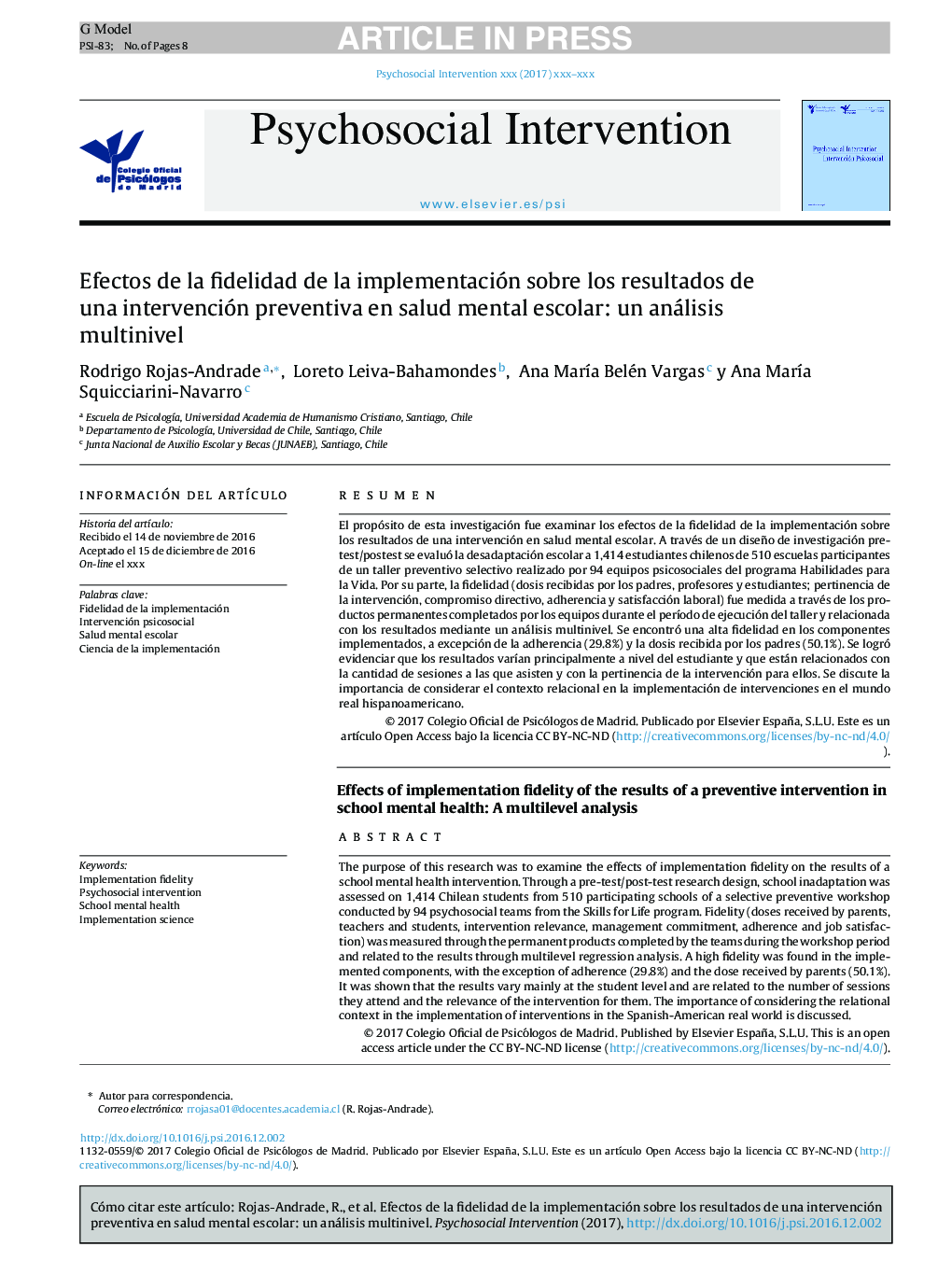| Article ID | Journal | Published Year | Pages | File Type |
|---|---|---|---|---|
| 7254174 | Psychosocial Intervention | 2017 | 8 Pages |
Abstract
The purpose of this research was to examine the effects of implementation fidelity on the results of a school mental health intervention. Through a pre-test/post-test research design, school inadaptation was assessed on 1,414 Chilean students from 510 participating schools of a selective preventive workshop conducted by 94 psychosocial teams from the Skills for Life program. Fidelity (doses received by parents, teachers and students, intervention relevance, management commitment, adherence and job satisfaction) was measured through the permanent products completed by the teams during the workshop period and related to the results through multilevel regression analysis. A high fidelity was found in the implemented components, with the exception of adherence (29.8%) and the dose received by parents (50.1%). It was shown that the results vary mainly at the student level and are related to the number of sessions they attend and the relevance of the intervention for them. The importance of considering the relational context in the implementation of interventions in the Spanish-American real world is discussed.
Related Topics
Social Sciences and Humanities
Psychology
Applied Psychology
Authors
Rodrigo Rojas-Andrade, Loreto Leiva-Bahamondes, Ana MarÃa Belén Vargas, Ana MarÃa Squicciarini-Navarro,
